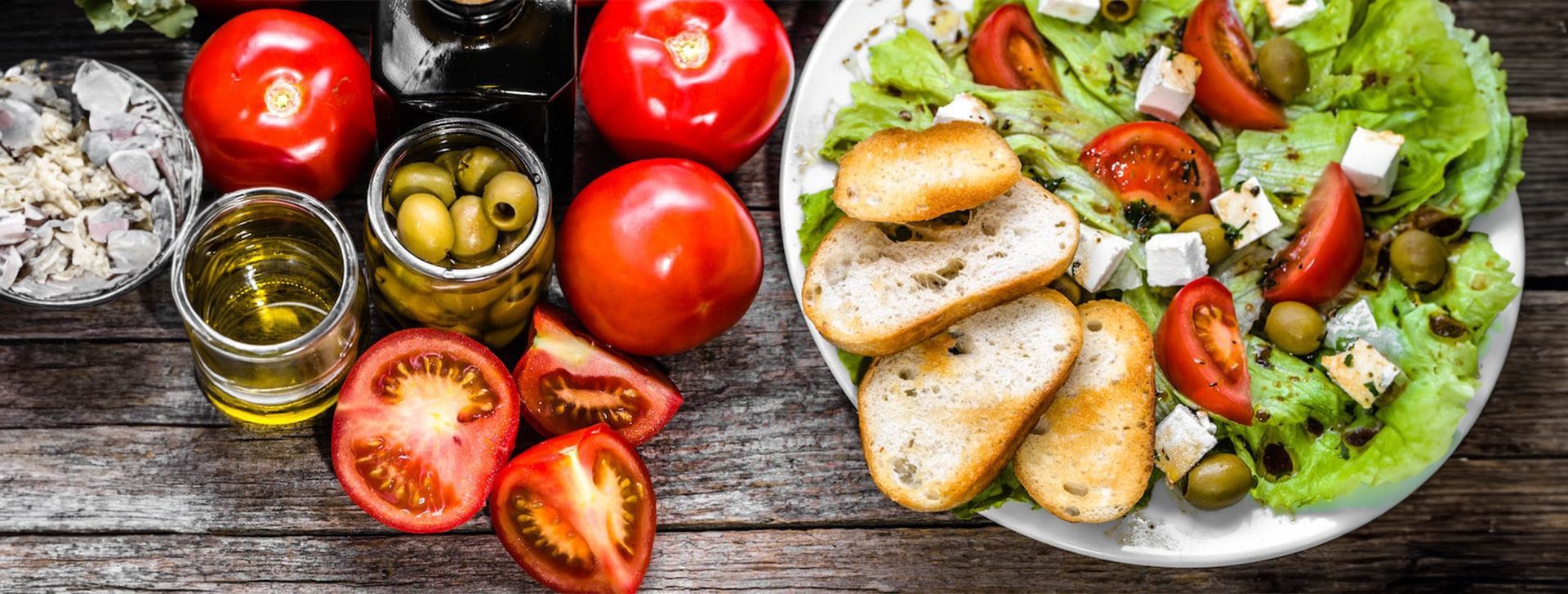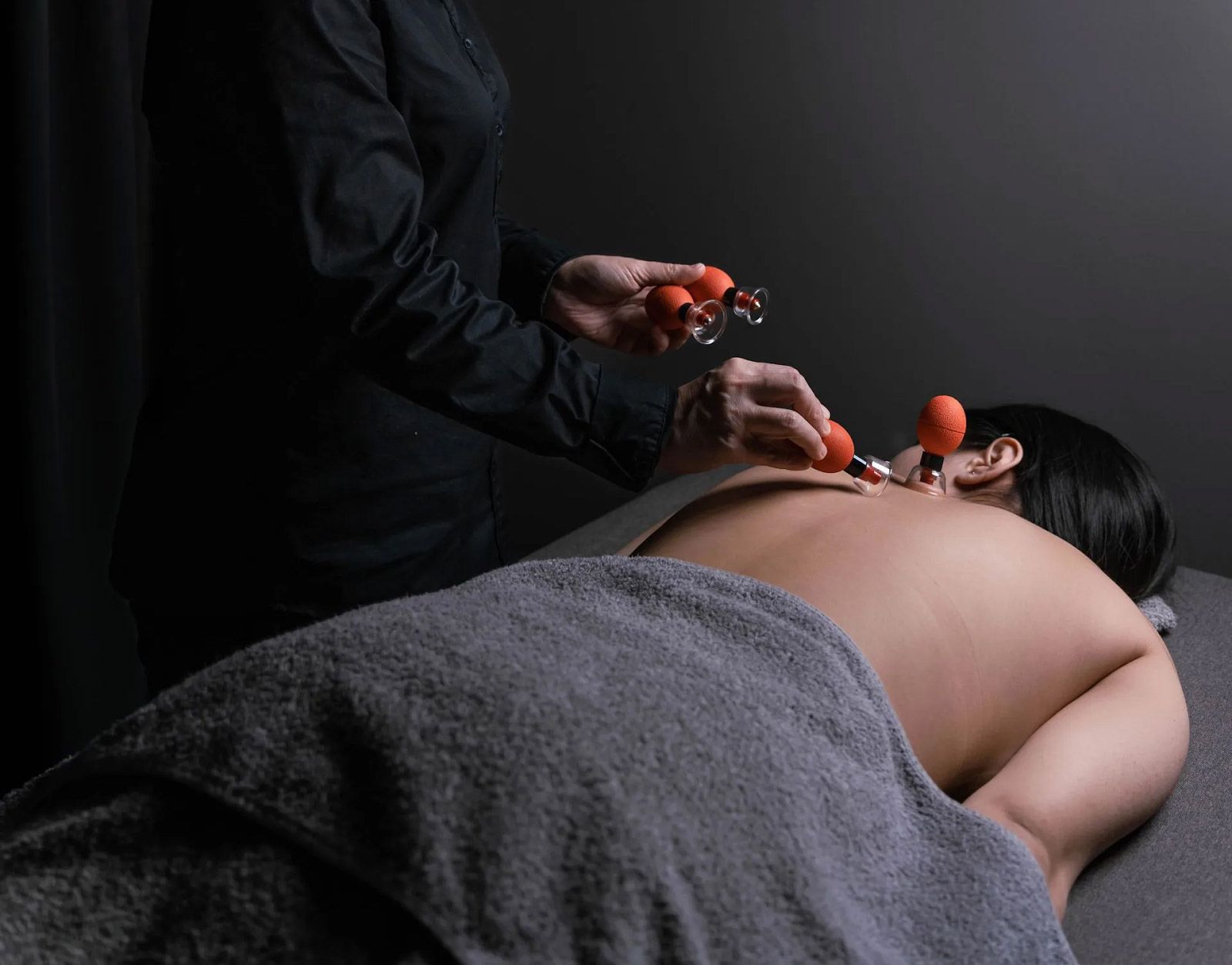How to Adapt the Mediterranean Diet for an Asian Table
Here's one diet that requires almost no effort.

Does a menu of vegetables, fruits, poultry, eggs, fish, whole grains and the occasional glass of red wine sound like a dream diet to you? That’s the highly nutritious Mediterranean diet – a way of life for people who live on the Mediterranean coast.
Also known as the peasant diet, it harks back to a time when people would primarily eat the vegetables growing in their gardens, along with dairy and olive oil.
There’s really no diet that is as universally recommended by experts all over the world. You’ll be happy to know how easy it is to adapt the Mediterranean diet for Asian diners.
Why go Mediterranean?
The Mediterranean diet started gaining traction in the 1960s when scientists observed that fewer people in the Mediterranean regions died of heart disease. Compared to the northern Europeans and the Americans, people living in countries such as Italy, Spain and Greece were at a lower risk for cardiovascular disease, diabetes and stroke.
Subsequent studies proved that their good fortune was diet-related. There is evidence to show that Mediterranean diet is not only heart-healthy, but can promote weight loss and longevity.
Yet, this diet does not intentionally eliminate natural food groups.
If anything, the only no-no foods in this diet are refined oils, refined grains, saturated fats, foods with added sugar and highly processed products. Compared to other diets such as the Atkins and the ketogenic diet, the Mediterranean diet is much less restrictive, embracing most nutrients in their natural form.
When one is on a nutrient-dense diet, it also means that you eat more economically – meaning you need less food to meet your body’s daily requirements. You’re also less prone to nutrient deficiencies and require supplements as a result.
And here’s the best part about following the Mediterranean diet: there isn’t a regimental diet plan to follow. We can simply take the traditional foods eaten in Mediterranean countries, and localise them in an Asian setting.
But first, let’s find out what the components of a Mediterranean diet.
Main foods in the Mediterranean diet
When on the Mediterranean diet, one can expect to eat foods that are rich in monounsaturated fats, omega-3 fatty acids and fibre.
This would include a daily intake of vegetables, fruits, potatoes, legumes, seeds, nuts, whole grains, spices, herbs and seafood in general.
Your oil of choice would be extra virgin olive oil – which we know to be the healthiest fat on earth. It is loaded with antioxidants, is high in monounsaturated fats, and contains moderate amounts of vitamin E and K.
You would eat poultry, cheese, eggs and yogurt but only on a moderate basis. You could indulge in a glass of red wine daily, and very rarely would you eat red meat.
You would steer clear of processed products such as deli meats, fortified cereals, and anything labelled “low fat”. Instead of refined grain products like white bread, pasta and rice made with refined wheat, you would eat rolled oats, unhusked rice, and whole wheat bread.
Foods with added sugar, such as candies and chocolates, are off-limits!
Adjusting the Mediterranean diet for an Asian palate
All the staple foods in the Mediterranean diet are easily available from any wet market or supermarket in Singapore, and you probably already eat a great deal of them. If vegetables, fruits, legumes, seeds, nuts and fish are already part of your daily repertoire, you’re no stranger to Mediterranean eating.
Here are some suggestions that can fine-tune your diet further:
- Eat more plant-based foods.
- Eat more soy products such as tofu and tempeh.
- Switch dairy out for oat, soy, almond, or other plant-based milk.
- Switch to extra virgin olive oil, avocado oil or canola oil.
- Go for whole grains with complex sugars instead of refined grain products that are full of simple sugars.
- When you need protein, go for fish and seafood. Limit eggs and poultry to once a week, and red meat to once every other week.
Here’s a suggested meal plan:
Breakfast – Overnight oats with soy milk, honey, pecans, chia seeds, coconut flakes and berries.
Lunch – Tuna, tomato and cucumber on whole wheat bread.
Dinner – Blanched veggies, steamed threadfin with a dressing of garlic, ginger and parsley in olive oil, sprouted brown rice and vegetable soup. Fruit for dessert.
Feeling peckish in between meals? Calm your hunger pangs with snacks like muesli, granola (go for low sugar options), trail mix, steamed peanuts, steamed chickpeas and – yes! – fruit.
Going Mediterranean when you’re eating out
When you’re dining out, it’s more challenging to go 100% Mediterranean as you won’t have control over using the right type of oil. But when possible, try to apply these tips:
- Go for brown rice instead of white when the option is available.
- Go for olive oil-based salad dressings instead of Thousand Island or mayonnaise.
- Go for steamed or grilled dishes instead of dishes that are deep-fried or stir-fried, since these cooking methods involve less oil.
- Consider eating Indian food when you have to eat out. Other than the fact that ghee is mostly the fat of choice in Indian cuisine, there are plenty of opportunities to eat legumes (dhal), whole grains (chapati, naan), as well as herbs and spices.
- Go for water instead of sugared beverages. If you’d like coffee or tea, give the sugar a pass.
Trying to lose weight by going Mediterranean?
While incorporating a Mediterranean element in your meal planning is bound to improve your health in the general sense, weight loss is a different ball game altogether.
Eating for health isn’t quite the same as eating for weight loss. Even the healthiest, most sensible diets can’t permanently solve the main root cause of weight gain, which is the slowing of our metabolism due to age.
If you’re looking for fast, natural and long-lasting weight loss, consider our signature CSH therapy®. Using a combination of cupping, scraping and heat therapy, CSH therapy® is our traditional Chinese approach to improve your metabolism – for good. No diet supplements and exercise required, no side effects, no risks.
But don’t just take our word for it. Since 2002, we’ve helped thousands of satisfied clients achieve their ideal figure. Read their testimonials here.
Want to find out more? Let’s have a chat. Book a consultation today.



